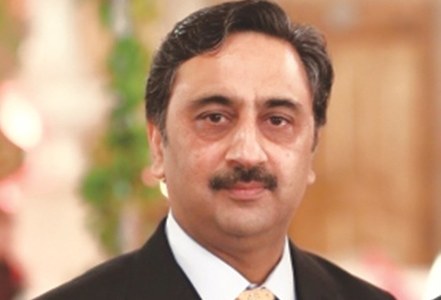WASHINGTON: The United States has urged India and Pakistan to adhere to the Indus Waters Treaty (IWT), calling it a model for peaceful cooperation.
The Indian media reported this weekend that India was seriously considering a proposal to scrap the treaty to force Pakistan to change its Kashmir policy.
“The Indus Waters Treaty has served as a model for peaceful cooperation between India and Pakistan for over 50 years,” a spokesperson for the US State Department told Dawn.
“We hope and encourage India and Pakistan to resolve any differences through bilateral dialogue,” the US official added.
The IWT is a water-distribution agreement between India and Pakistan, brokered by the World Bank and signed in Karachi on Sept 19, 1960, by then president Ayub Khan and then prime minister Jawaharlal Nehru.
The treaty gives India waters of the Ravi, Sutlej and Beas rivers and Indus, Jhelum and Chenab to Pakistan, with limited allowance to India over the three western rivers for power generation, etc.
But after the Sept 18 militant attack on an Indian military facility at Uri in held Kashmir, New Delhi suspended biannual talks with Pakistan — as mandated in the treaty — to discuss water distribution.
Last week, Indian Prime Minister Narendra Modi held a meeting to review the 56-year-old treaty, which decided to “exploit to the maximum” the water dispute as a foreign policy tool.
Pakistan reminded India that international laws prevented upper riparian states from stopping the flow of water to those down the river. Pakistan also warned India that stopping the rivers was an act of war.
On Sept 27, a Pakistani delegation met senior World Bank officials in Washington and urged them to prevent India from making illegal constructions on the Neelum and Chenab rivers.
The delegation reminded the officials that the treaty authorised the bank to establish a court of arbitration and appoint three judges to the court. India and Pakistan each appoint two arbitrators.
Diplomatic sources in Washington told Dawn that the review meeting in New Delhi discussed three options: scrapping the treaty, recommencing work on one of the dams and suspending biannual talks.
The sources said that all three options were still on the table, forcing Pakistan to take the matter to the World Bank.
The construction on the dam, called Wullar Barrage in Pakistan and Tulbul Project in India, started in 1987 but stopped when Pakistan objected. The review committee has now decided to resume it.
A senior Pakistani diplomat, while pointing to the US description of the treaty as “a model of cooperation”, said that “India may find it difficult to scrap the treaty as it will irk the international community, but it may continue working on the other two options”.
The Pakistani team that met World Bank officials in Washington reminded them that the Kishanganga project was also a violation of the Indus Waters Treaty.
The Indians, however, argue that the World Bank can only establish a court of arbitration when the biannual talks fail. Since the talks have only been suspended, not scrapped, the bank cannot set up a court yet.
“The Pakistanis are saying that they have exhausted all efforts at the bilateral level. And earlier this year, the Indus Water Commission also declared it a dispute. So now is the time for the World Bank to play its role,” said an official aware of the proceedings.
Pakistanis are believed to have told the bank that they consider the resumption of disputed projects a “very serious violation” of the treaty and an example of “India’s high-handedness”.
The Pakistani team informed the World Bank officials that “the three rivers are their lifeline as they are an agrarian nation”, said the official who spoke to Dawn.
On Saturday, China blocked a tributary of the Brahmaputra river as part of a major hydroelectric project, which also strengthened Pakistan’s case.
In Washington, the step is seen as a warning to New Delhi against using water as a foreign policy tool.
Published in Dawn, October 3rd, 2016














































